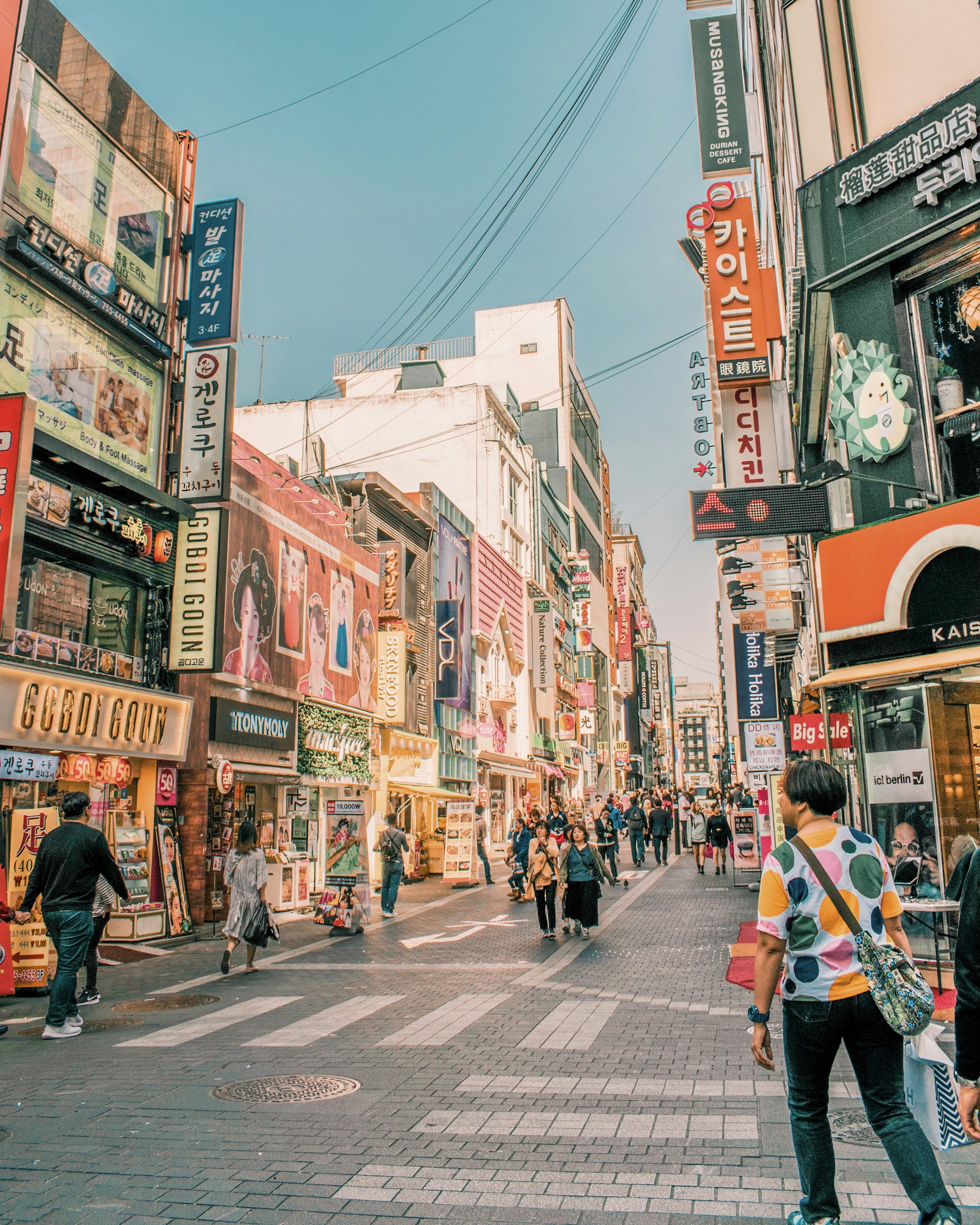Discovering South Korea: A Comprehensive Travel Guide

Discovering South Korea: A Comprehensive Travel Guide
South Korea, officially known as the Republic of Korea, is a vibrant and captivating country located in East Asia. Known for its rich history, stunning landscapes, and bustling cities, South Korea offers travelers a unique and unforgettable experience. Whether you're interested in exploring ancient temples, hiking in picturesque mountains, or indulging in delicious Korean cuisine, this travel guide will provide you with all the information you need for an incredible journey.
Getting There
South Korea is easily accessible by air, with major international airports located in Seoul, Busan, and Jeju. Many airlines offer direct flights from various cities around the world, making it convenient to reach this fascinating country. Once you arrive, the transportation system within South Korea is highly efficient, and you can easily navigate the country by train, bus, or subway.
Must-Visit Destinations
1. Seoul: The capital city of South Korea, Seoul, is a dynamic metropolis that seamlessly blends tradition and modernity. Explore the historic palaces, such as Gyeongbokgung and Changdeokgung, and stroll through the vibrant streets of Myeongdong and Hongdae. Don't miss the opportunity to visit the iconic N Seoul Tower, where you can enjoy panoramic views of the city.
2. Busan: Located on the southeastern coast, Busan is a bustling port city known for its beautiful beaches, vibrant markets, and delicious seafood. Relax on Haeundae Beach, wander through the colorful Gamcheon Cultural Village, and visit the iconic Haedong Yonggungsa Temple.
3. Jeju Island: Often referred to as the "Hawaii of South Korea," Jeju Island is famous for its scenic landscapes and natural wonders. Explore the stunning waterfalls, hike up Mount Hallasan, and marvel at the unique volcanic rock formations of Jusangjeolli Cliffs.
4. Gyeongju: Known as the "museum without walls," Gyeongju is a city steeped in ancient history and cultural heritage. Visit the UNESCO World Heritage Sites such as Bulguksa Temple and Seokguram Grotto, and wander through the historic streets of Yangdong Village.
Cultural Delights
South Korea boasts a rich cultural heritage that can be experienced through its traditional arts, festivals, and cuisine.
1. Traditional Arts: Experience the beauty of traditional Korean music, dance, and theater by attending a performance at National Theater of Korea in Seoul or enjoying a traditional folk village like the Hahoe Village in Andong.
2. Festivals: South Korea's festivals are vibrant and diverse, offering visitors a chance to immerse themselves in the country's traditions. The Jinhae Cherry Blossom Festival, the Andong Mask Dance Festival, and the Boryeong Mud Festival are just a few examples of the lively celebrations held throughout the year.
3. Cuisine: Korean cuisine is renowned for its bold flavors and unique ingredients. Indulge in classic dishes such as bibimbap, bulgogi, and kimchi, and explore the bustling street food markets to discover new culinary delights.
Natural Wonders
South Korea is blessed with diverse landscapes, from majestic mountains to serene coastlines.
1. Seoraksan National Park: Located in the northeast, Seoraksan National Park is a hiker's paradise with breathtaking scenery. Explore the numerous trails, admire the vibrant autumn foliage, and visit the ancient Buddhist temples nestled in the mountains.
2. Nami Island: This small, picturesque island is famous for its stunning tree-lined paths and beautiful gardens. Rent a bike and cycle around the island, enjoy a picnic by the lake, or simply take in the tranquility of this natural oasis.
3. Boseong Green Tea Fields: Located in the southern part of the country, the Boseong Green Tea Fields offer a peaceful escape. Walk through the emerald green tea plantations, learn about the tea-making process, and savor a cup of freshly brewed green tea.
Practical Information
The official language of South Korea is Korean, and the currency is the Korean won (KRW). Visa requirements may vary depending on your nationality, so make sure to check the latest information before your trip. South Korea is generally safe for travelers, with a low crime rate; however, it's always advisable to take the usual precautions.
The best time to visit South Korea is during spring (April to June) and autumn (September to November) when the weather is mild and the landscapes are adorned with cherry blossoms or vibrant foliage. Summers can be hot and humid, while winters can be cold, especially in the northern regions.
South Korea is a country that seamlessly blends tradition and modernity, offering visitors a fulfilling experience no matter their interests. From ancient temples and natural wonders to vibrant cities and delicious cuisine, South Korea has something to enchant every traveler.
